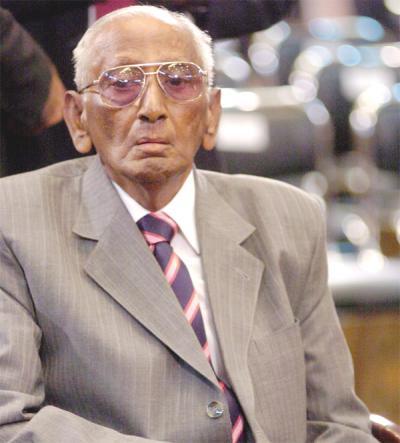Le bureau de l’Attorney General (AGO) a enclenché cette semaine les démarches en vue de pouvoir contester devant le Judicial Committee du Privy Council (JCPC) le jugement qu’ont rendu les juges Bushan Domah et Rehana Mungly-Gulbul. Dans ce jugement, ils avaient trouvé que la pension versée à Angidi Chettiar en tant qu’ancien vice-président de la République n’était pas imposable.
L’AGO a déposé lundi trois raisons pour justifier sa demande d’interjeter appel. Pour lui, les juges ont eu une mauvaise interprétation de la loi sur la question. Il soutient que tout revenu sous quelque forme que ce soit, est taxable à moins qu’une loi ne spécifie le contraire.
Rappelons que la Cour suprême avait siégé en instance d’appel contre une décision de l’Assessment Review Committee (ARC). Ce comité avait analysé l’objection logée par le regretté Angidi Chettiar après que la Mauritius Revenue Authority (MRA) lui avait réclamé un certain montant comme impôts sur sa pension.
D’emblée, les juges ont fait remarquer qu’Angidi Chettiar « took the courageous and unconventional view that he is not liable to tax on his retirement pension ». La MRA était, elle, d’un avis contraire. « The MRA took the conservative view that, since the appellant was no longer in office but in retirement, the office pension, by that fact, becomes taxable. »
Le litige fut pris en charge par l’ARC, qui trancha en faveur de la MRA. Cette décision a été contestée par deux points d’appel qui sont les suivants : 1) … « erred in law when it failed to consider and/or properly consider and/or address the point that the emoluments of the Vice President, including the Pension of the Vice President, is exempt from taxation under the Income Tax Act 1995 ; all the more so as the point had been raised before it by both Counsel for 1995 ; all the more so as the point had been raised before it by both Counsel for the Appellant and Counsel for the Respondent. 2). … erred in law when it imported and applied the definition of “pension” and “office” from the President’s Emoluments and Pensions Act when, for the purposes of the Income Tax Act, the word “emoluments” is already defined in the Income Tax Act itself. »
Les juges ont cité l’Income Tax Act de 1995 qui stipule que « the emoluments derived from the office of the President and Vice President shall be free from taxation ». L’ARC a observé de son côté, que « only emoluments derived from the Office of the Vice President (or President) is exempt from Income Tax. Under the President’s Emoluments and Pension Act, it is clearly established that a retiring Vice President (or President) is a person who ceases to hold office as Vice President (or President). This means that any pension derived by the Vice President, by the fact that he has been Vice President, cannot be a sum derived from the Office of the Vice President because he does not hold the Office any more ».
Les juges ont pris la peine d’expliquer la signification légale du terme emoluments et celle de la pension. Se référant à l’article 2 de l’Income Tax Act de 1995, ils sont parvenus à la conclusion que ce terme est wide-ranging. « It means any advantage in money or money’s worth. Pension is payable in money. It is clearly included », écrivent-ils.
Ils ont rappelé le cas de sir Dayendranath Burrenchobay qui n’avait pas payé la taxe sur sa pension en tant qu’ancien gouverneur général. Quand Maurice accéda au statut de République, « the Governor-General was replaced by a President with the same powers except its allegiance to the Queen of England. The legislature could have brought amendments to the Schedule to say that the pensions of the President or the Vice President, once out of office, shall be liable to tax on income derived from his office. It did not ».
Les juges ont conclu en faisant ressortir les points suivants. « The tax free regime of emolument inclusive of pension is not without a quid pro quo (ndlr : quelque chose contre quelque chose ou main gauche main droite — à ne pas confondre avec le terme quiproquo qui signifie confusion) from the part of the President and the Vice President. They are not entitled once out of office to undertake any remunerative employment for the rest of their lives. That restrictive covenant constitutionally imposed upon a person with wide experience in personal life, public life, political life who can put so much of all this to remunerative work at various levels of a developing nation is not a mean restriction which he suffers for the rest of his life right up to the end of his life. Vice Presidents could well argue — but we are not aware they do — that the restriction is unconstitutional. Others raised on a diet of constitutionalism would argue that it is a Convention converted into written law. But the fact remains that there is quid pro quo which is of no mean value. The value is not merely in cash. There is a constitutional and institutional value add. »
BUREAU DE L’ATTORNEY GENERAL : Demande logée pour contester le jugement Chettiar au Privy Council
- Publicité -
EN CONTINU ↻
- Publicité -

